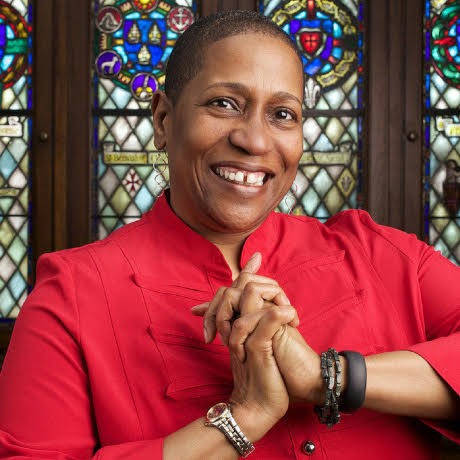Episode 2: We are interconnected | A conversation with Pamela Lightsey
We have a responsiblity to agitate for justice, but we can't lose our love for the human soul and its dignity in the midst of that work.

In Our Lives Matter: A Womanist Queer Theology, Pamela Lightsey writes, “Black spirituality is deeper than—and can also be absent from—any relationship with the church universal. Black spirituality, especially Black women’s spirituality, is connected to our very being.” In this second episode of Contemplating Now, Lightsey shares about contemplation's role in activism and asks, “What does protest mean for a scholar?”
Lightsey describes herself as a multi-vocational queer lesbian woman: theologian, ordained United Methodist elder, and social justice activist. Since January of 2018, she has served as vice president of academic and student affairs and associate professor of constructive theology at The Meadville Lombard Theological School. Before that, Lightsey served as associate dean of community life and lifelong learning, clinical assistant professor of contextual theology and practice at the Boston University School of Theology.
Her work centers on the causes of peacemaking, racial justice and LGBTQ rights, reflecting her belief that "humanity is interconnected. This means, I have a responsibility to the world to agitate for justice; I also have a responsibility not to lose my love for the human soul and human dignity in the midst of that work.”
“Queer womanist theology makes the claim that those bodies of LGBTQ persons are important for the tasks of helping build a peaceable and just world. That happens in relationships,” she writes. “At the end of the day, eradicating oppression is the heart of queer womanist theological reflection. We must examine not just racism but sexisms, not just homophobia but transphobia, not just poverty but war, and not just the fluidity of boundaries but the hegemony of the status quo.”




